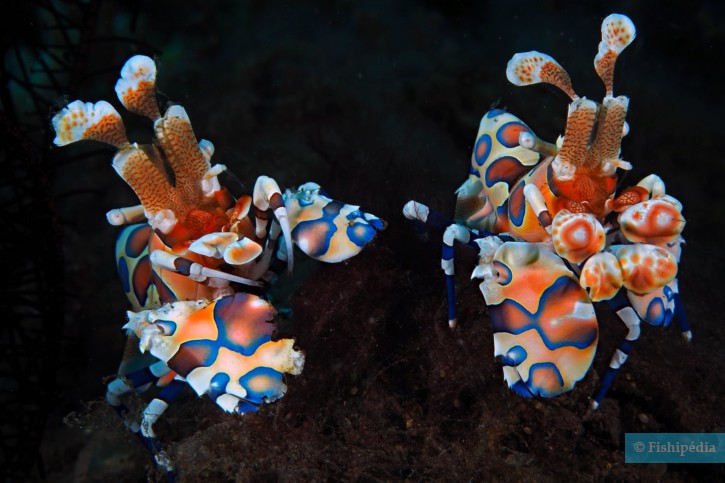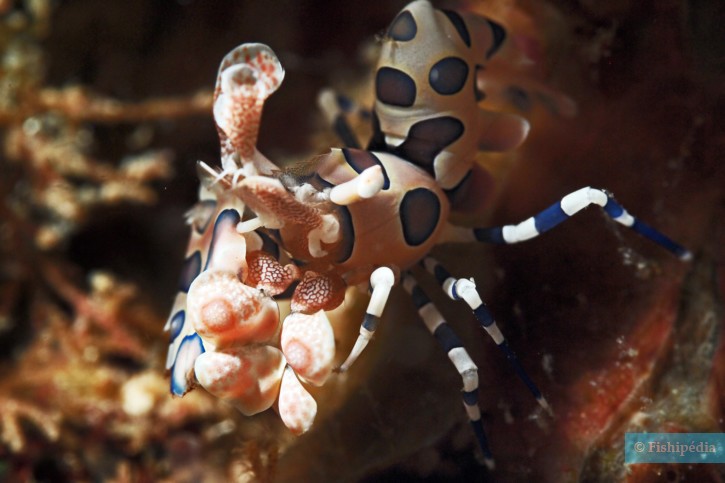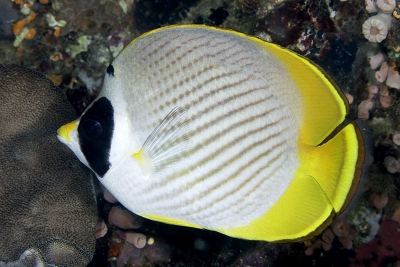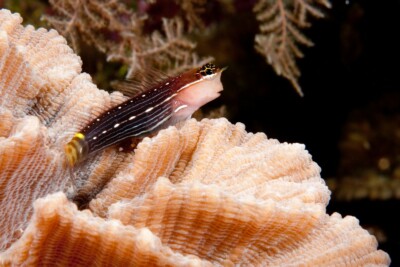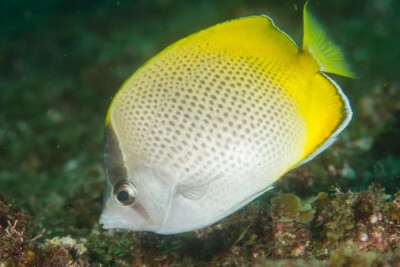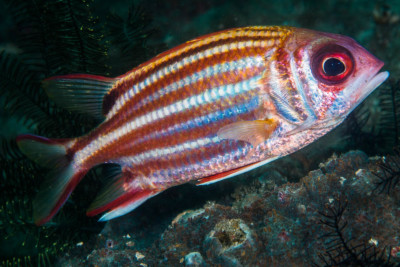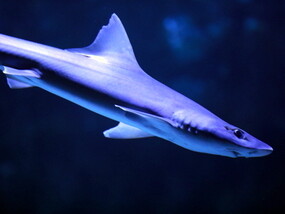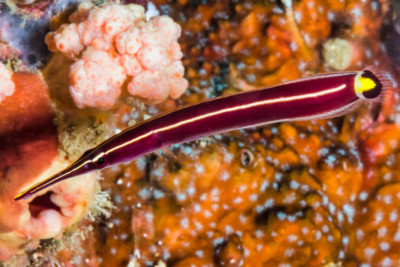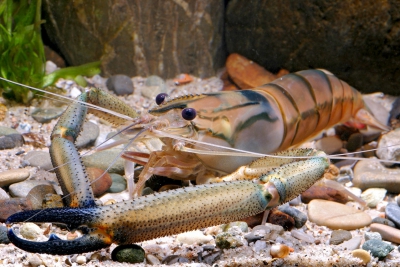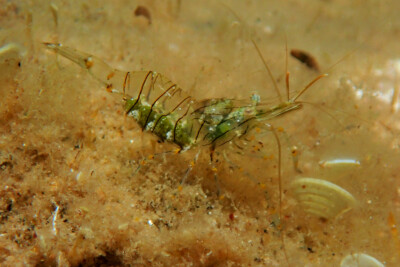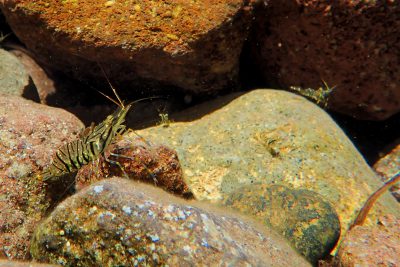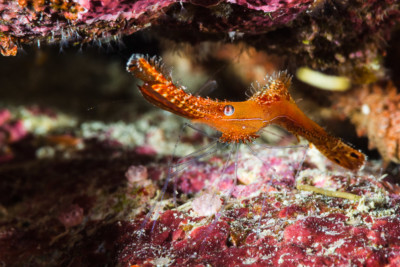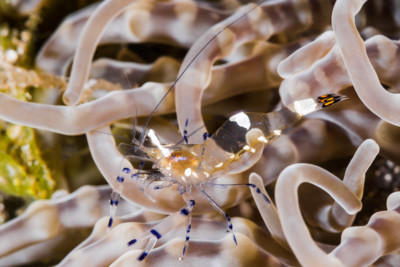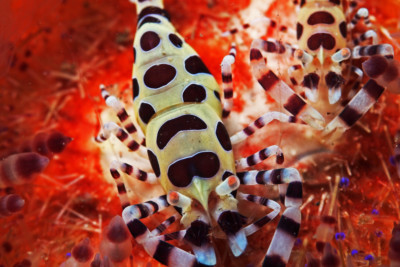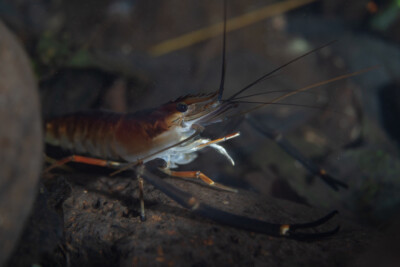Harlequin Shrimp
| Scientific name | Hymenocera picta |
|---|---|
| Descriptor | Dana |
| Year of description | 1852 |
| IUCN category (World) | NE |
| Family | Palaemonidae |
| Genus | Hymenocera |
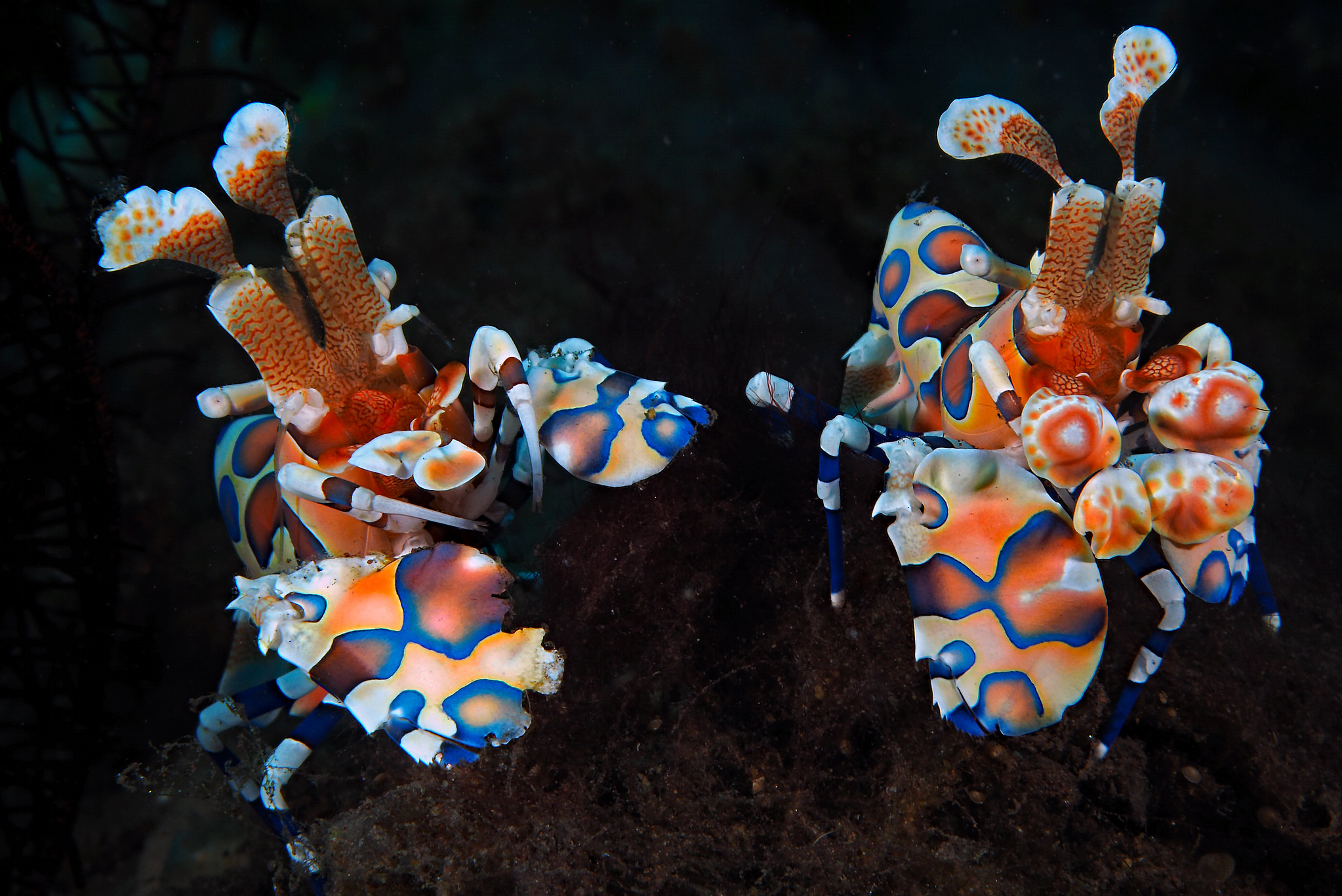

Introduction
Hymenocera picta, commonly known as Harlequin Shrimp, is a little salt water crustacea.
This sheet is currently being prepared. The texts currently proposed come from our data model or are being drafted. To request priority for this content, you can write to us HERE.
Who is it?
Morphology
-
Average size3 cm
-
Maximum size4 cm
-
Patterntasks
-
Mimicryleaf
-
Average size3 cm
-
Maximum size4 cm
-
Patterntasks
-
Mimicryleaf
How to recognize this crustacea ?
The Harlequin Shrimp measures around 3 cm. The females are more imposing and some specimens can reach 4 cm. this crustacea is bicolore with a predominantly bleu and blanc body. The also has bleu tasks.
Of elongated form, like all the shrimps, it has 5 pairs of legs and a segmented carapace at the level of the abdomen which ends in a tail in fan cut for swimming.
Sexual dimorphism
The female is bigger than the male.
Behaviour & Life cycle
-
Sociabilityliving as a couple or alone
-
territorialYes
-
VenomousNo
-
Way of livingdiurnal
Like all crustaceans, The Harlequin Shrimp molts whenever it becomes cramped in its shell. Before the hardening of its new body, it is more vulnerable and spends a good part of its time hidden. This mechanism, very complex, allows the periodic renewal of the exoskeleton and part of the internal skeleton. It is also during the moult that the females become fertile.
The Harlequin Shrimp is a crustacea living as a couple or alone naturally found in the vegetation. This species is carnivorous . Measuring only a few centimeters, this small species tends to be discreet and hide in the presence of larger neighbors.
In a constant quest for dominance, the dominant males of this species cannot stand each other. The battle between two individuals can be intense and violent. It will result in the submission and sometimes even death of one of the protagonists.
The cilia located on the legs and tail facilitate swimming, which is done in leaps when the abdominal muscles contract.
Reproduction
-
Reproductionovipare
The Harlequin Shrimp is a crustacea ovipare.
Harmless species
This species does not represent any particular threats to humans when encountered in its natural environment.
Origin and distribution

What is its habitat?
Natural environment characteristics
-
Temperature22 - 28 °C
-
Depth1 - 20 m
Biotope presentation
The Harlequin Shrimp is most often found at a depth between 1m and 20m. However, it is not impossible to find this species at other depths.
Species of the same biotope
Fishkeeping
Not recommended
We do not recommend keeping this species in an aquarium. It has unpredictable needs which, if not met, generate significant stress, potentially leading to a shorter life expectancy, an interruption of its growth or the development of pathogens.
To go further
Sources & Contributions
Participation & Validation
The Fishipedia team and specialist contributors are committed to providing high-quality content. However, although the information comes from scientific sources or testimonials from specialists, the cards may contain inaccuracies.
Translation
Translation done with the valuable contribution of our translators, who make this information available to a wider audience. We sincerely thank them for their commitment.

Benoit Chartrer
Scientific partners
Tags
Species of the same family
Species of the same biotope
